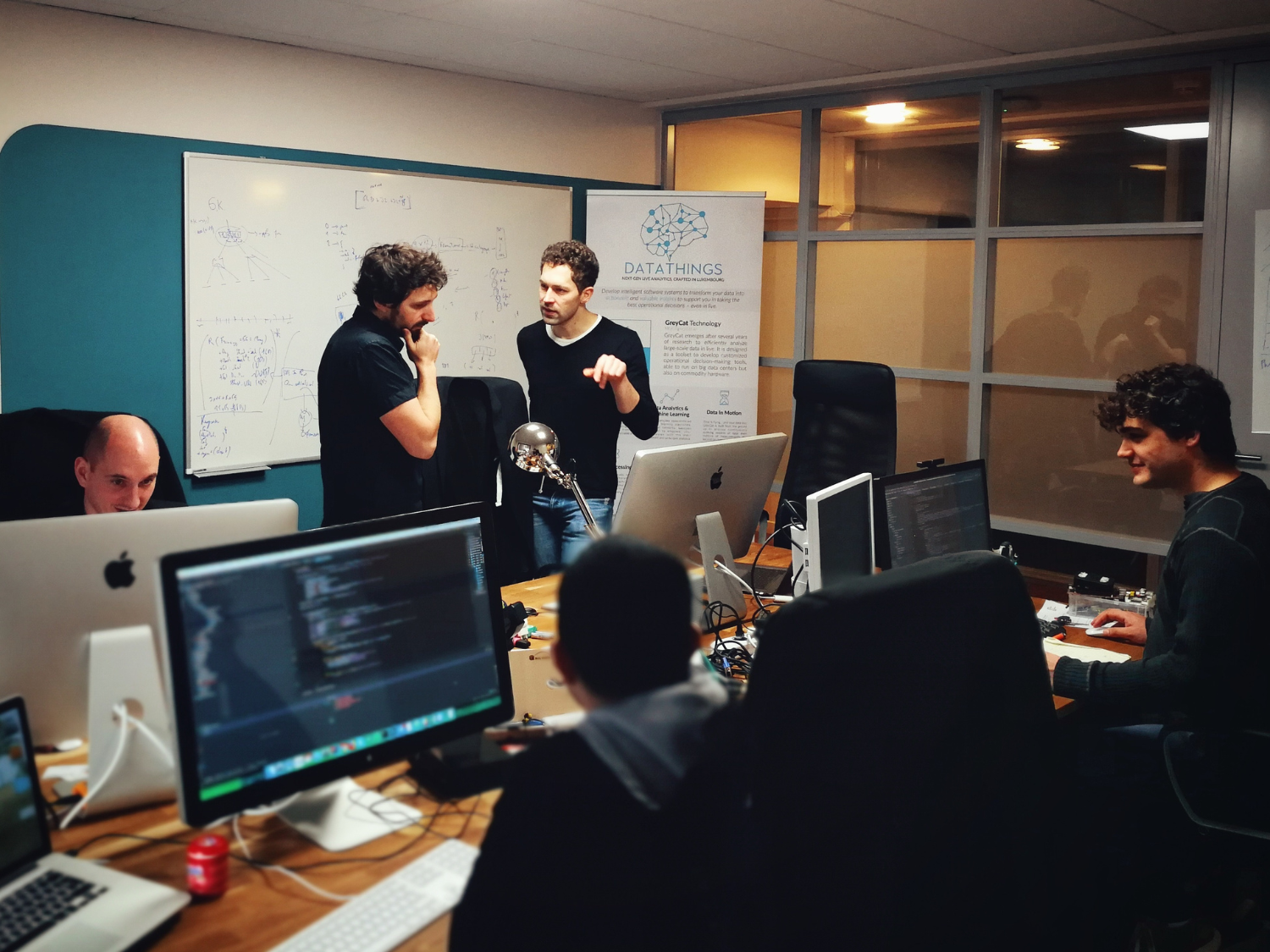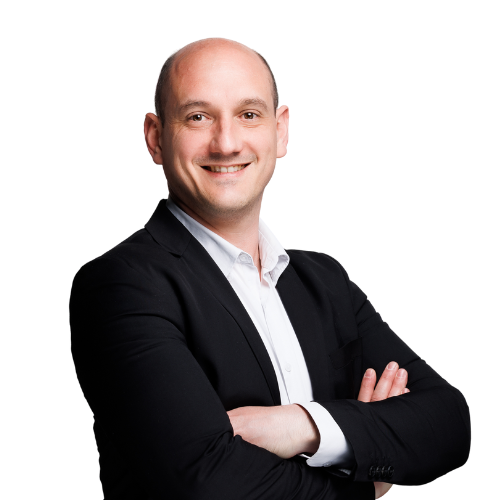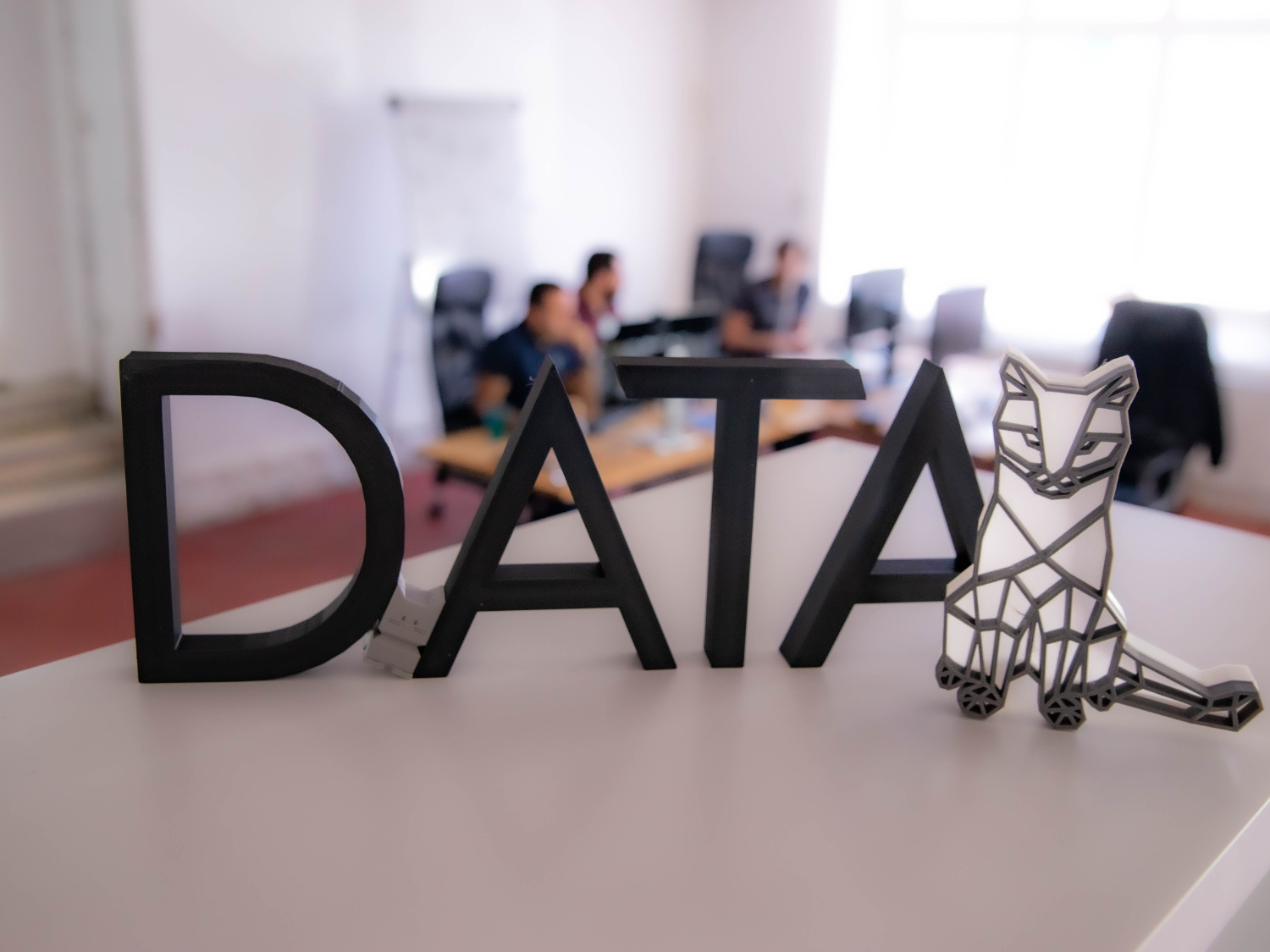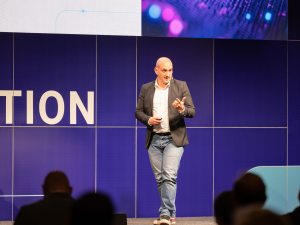A few weeks ago, Gregory Nain started coding again for the first time in two years. Originally a software engineer, now co-founder and head of operations of the eight-year-old University spin-off DataThings, he does everything but code.
DataThings develops AI software systems that transform data into actionable and valuable insights. For the business it’s critical that his three other co-founders, also software engineers and data scientists, stay on the cutting-edge. “This is why we each have distinct and complementary roles. This way we can protect the skills that are needed for our products to be competitive while growing as a business, which is my role.”

Listen and adapt
As head of operations, Nain is responsible for the tasks of any CEO type, driving business development, communication, administration, and people management. Now a company with 13 employees, he stopped coding on a regular basis a few years ago.
“We started the company in 2017 and we grew into a profitable business within three years,” said Nain. Adapting his company’s marketing approach to the current tech trends has become a new skill for him. “Back then what we were doing would have been referred to as cyber-physical systems, but now digital twins and AI are trending topics. You need to continuously listen and adapt your terminology so that people understand enough to agree to that first meeting.”
From niche technology to trusted partnerships
That first meeting has been crucial for a company like DataThings, as it is operating in a market with established players. “Our product, Kopr twin, is quite niche because it’s serving companies that transmit or distribute electricity. Everything is kind of sensitive because it’s critical infrastructure.”
Kopr twin was launched following their first round of investment funding in 2020 alongside GreyCat, the core technology of DataThings. They enable companies, and software engineers more generally, to process data in-house. “We are delivering 10x to 100x better performances than the competition, so we have something that is quite unique, and I would say is five years ahead of the market in the energy sector.”
‟ Yet, because our competitors are such established companies, we still have to prove that we will be around tomorrow, even after eight years, as longevity is so important for our market.”

Head of Operations
To manage this dynamic, Nain focuses on partnerships with companies that are already serving his market, either as IT implementors or consultants, and can act as third-party providers of DataThings products.
Paul Wurth, Cebi, and Creos were some of the first customers of the company, providing momentum in those early days. “It was proof that the technology was needed and solved real problems,” said Nain. Now the team is thinking about a second round of investment, and a new flagship partner is needed. “What we’re probably missing today is someone on the board who would vouch for the core technology. Someone with more footing in the software development industry or consultancy.”
Speaking confidently of boards and partners, Nain is clearly settled into his new role, but it hasn’t always been smooth sailing. “As we have set-up the company and grown our business, the challenge I didn’t expect was to know enough on a variety of subjects to avoid being scammed.” Following their trademark registration, he was contacted by a company demanding he pay a fee of €500 for monitoring the trademark. “The first time you receive something like this, you second guess if you missed something in the process,” Nain reflected. “But now I have experienced this kind of thing for all aspects of the business. I have spent a lot of time on Legilux and Guichet, to learn for myself what is true, as there can be so many different versions. The only source of truth can be yourself or your team, which is why having co-founders is so important.”
He and his co-founders have a strong foundation to weather such storms together. They worked together for five years as researchers at the Interdisciplinary Centre for Security, Reliability and Trust (SnT) of the University of Luxembourg. As one of the first spin-offs from SnT, their business grew naturally from their research. It began as an idea that was nurtured by SnT, and later became part of an FNR funded Proof of Concept (POC) programme (today called the FNR JUMP programme).
Researcher, co-founder, mentor
Today, SnT has an established process to support researchers with this process: the SnT Venture Programme, where Nain is a regular speaker and mentors upcoming SnT entrepreneurs. He and his co-founders maintain close ties with their original research home, even setting up a partnership for a few years in 2020. Their beginnings in a university work to their advantage. “When we say we are a spin-off of the University, it proves that the research was excellent enough that we could create a company. Clients understand that immediately. They don’t question the technology when they hear that,” said Nain.
The next important milestone boost will happen soon, when DataThings turns ten. “Most start-ups fail after two, three, or five years, and we are beyond that now. Every year we continue it gets easier to prove to our market that we have the longevity they require to work with us.”

